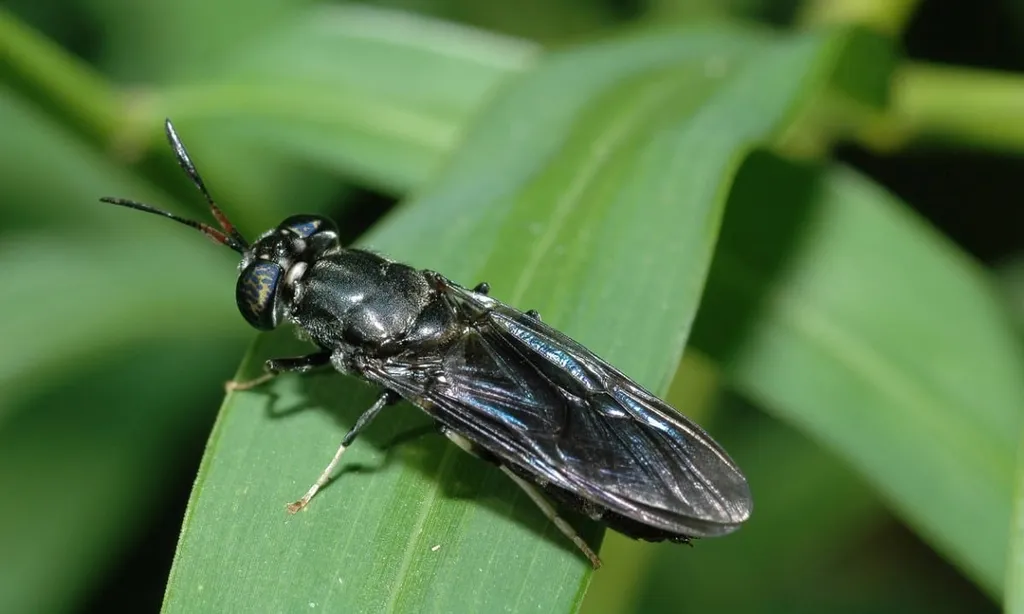In the heart of Indonesia’s Pasuruan Regency, a humble insect is making waves in the world of sustainable agriculture and waste management. The black soldier fly (BSF), often overlooked, is at the center of a groundbreaking study published in *Advances in Food Science, Sustainable Agriculture, and Agroindustrial Engineering*. Led by Abdul Wahid of Universitas Yudharta Pasuruan, the research delves into the potential of BSF larvae to transform organic waste into valuable resources, offering a beacon of hope for emerging economies grappling with escalating waste challenges.
The study employs a comprehensive PESTLE-SWOT analysis to unpack the complexities of adopting a circular economy (CE) framework for BSF-based organic waste management. PESTLE, which stands for Political, Economic, Social, Technological, Legal, and Environmental factors, provides a macro-level view of the challenges and opportunities. Meanwhile, SWOT—Strengths, Weaknesses, Opportunities, and Threats—offers a micro-level analysis of the internal dynamics of BSF enterprises.
“Rising market demand for BSF products and growing partnerships present significant opportunities,” Wahid explains. “However, the lack of supportive regulations and limited technical capacity pose substantial challenges.” The study reveals that while BSF enterprises boast strengths like efficient waste reduction and existing cooperation networks, they also grapple with weaknesses such as reliance on basic technology and a lack of understanding of circular economy principles.
The research highlights a defensive strategic position for BSF enterprises, with overall scores indicating a need for urgent intervention. “Unlocking circularity for BSF waste valorization in Pasuruan necessitates addressing regulatory gaps, enhancing technical capacity, and fostering multi-stakeholder collaborations,” Wahid emphasizes. Strategic interventions in policy, finance, and technology are crucial for transitioning towards a sustainable BSF-CE model.
For the agriculture sector, the implications are profound. BSF larvae can convert organic waste into high-value products like animal feed, biofertilizers, and even bioplastics. This not only addresses the pressing issue of waste management but also opens new revenue streams for farmers and entrepreneurs. “The potential for commercial impact is enormous,” says Wahid. “By leveraging BSF technology, we can create a sustainable loop where waste is not just managed but transformed into valuable resources.”
The study’s findings underscore the need for a multi-faceted approach to support BSF enterprises. Policy makers must create supportive regulations, while financial institutions can provide low-interest loans and grants to enhance technical capacity. Collaboration among stakeholders—including farmers, entrepreneurs, and government agencies—is essential for scaling up BSF-based waste valorization.
As the world grapples with the dual challenges of waste management and sustainable development, the BSF offers a promising solution. The research by Wahid and his team not only sheds light on the current landscape but also paves the way for future developments in the field. By addressing the identified challenges and leveraging the opportunities, the agriculture sector can unlock the full potential of BSF larvae, contributing to a more sustainable and circular economy.

